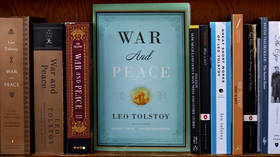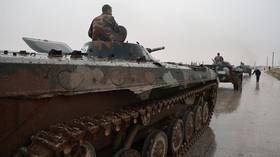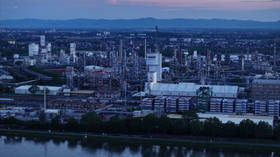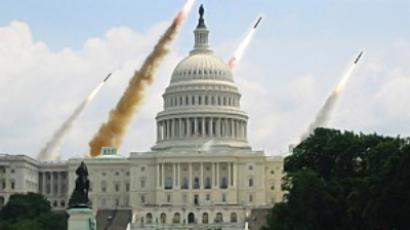Bitter nuke promises: Nobel Peace laureate Obama spending billions on US nuclear arsenal
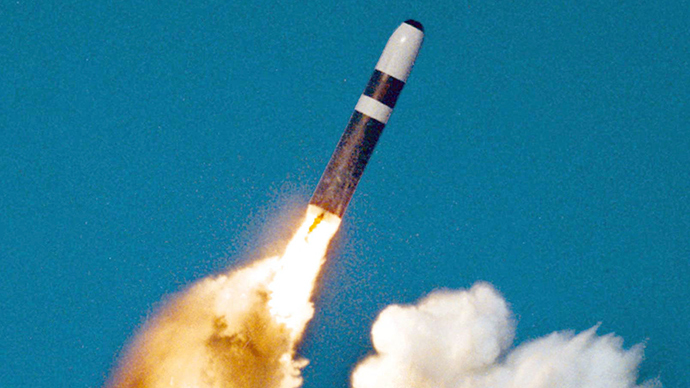
Barack Obama’s vision of a nuclear-free world seems to be unraveling at an alarming rate. In 2009 he won the Nobel Peace Prize for his commitment for nuclear disarmament. Five years on, the US’s nuclear arsenal sees a $355 billion investment.
The plan is to spend this vast sum over the next decade to try and upgrade the country’s nuclear deterrent, even though the final cost could turn out to be over $1 trillion. Despite the vast sums of money that will need to be spent, Obama's policy has plenty of backers at home, a report by the New York Times showed.
“While we still have weapons, the most important thing is to make sure they are safe, secure and reliable,” said Daniel Poneman, the US Deputy Energy Secretary. The improvements, he said, have reassured the US’s allies. “It’s important to our extended deterrent.”
The plans to upgrade and replace America’s nuclear arsenal are certainly ambitious. Washington is planning to upgrade eight nuclear facilities across the country, which employee 40,000 people, but the costs will run into tens of billions of dollars.
READ MORE: Aging US nuclear arsenal set for multibillion-dollar revamp
“There isn’t enough money,” said Jeffrey Lewis, of the Monterey Institute of International Studies, an expert on the modernization effort, speaking to the New York Times. “You’re going to get a train wreck.”
Obama’s administration has told the Pentagon that it needs to set aside money for 12 new missile submarines, up to 100 new bombers and 400 land-based missiles, which can either be built from scratch, or refurbish existing models.

However, the figure of $335 billion over the next decade, first forecast as early as in December, could be just the tip of the iceberg in terms of spending. A report by Dr. Lewis and his colleagues found that over the next 30 years, the US plans to spend in the region of $1 trillion to maintain the current arsenal, buying replacement systems and upgrading existing nuclear bombs and warheads.
The report added that if current predictions are to be believed, the United States will spend 3 percent of its defense budget on procuring new strategic systems during these peak years. This percentage is comparable to spending for procurement of new strategic systems in the 1980s under Ronald Reagan.
Si vis pacem, para bellum?
Aside from becoming involved in numerous conflicts across the globe, how did Obama go from wanting to cut the US’s nuclear arsenal in half, to commit to spending in the region of $335 billion over the next decade to upgrade the country’s nuclear deterrent?
READ MORE: ‘Anti-nuclear’ Obama plans to spend $1 trillion on nukes
“A lot of it is hard to explain,” said Sam Nunn, a former senator involved in nuclear reduction talks, who previously managed to influence the US president on disarmament. “The president’s vision was a significant change in direction. But the process has preserved the status quo.”
In April 2009, Obama outlined his dream of a planet free from nuclear weapons in a speech in Prague. He claimed it was not just a dream, but a real plan, and said that although the threat of global nuclear war had diminished, the risk of a nuclear attack had gone up.
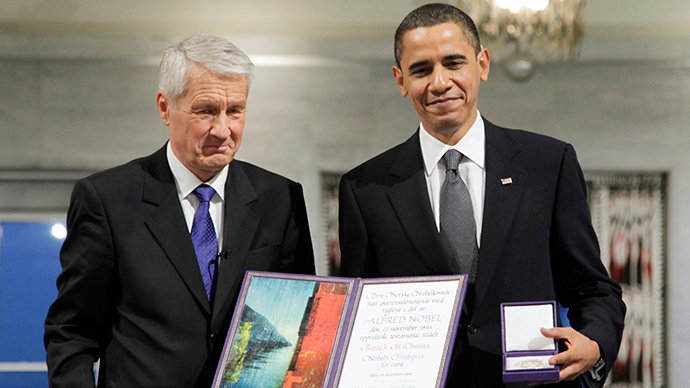
“We must stand together for the right of people everywhere to live free from fear in the 21st century,” Obama said in that speech. “As a nuclear power, as the only nuclear power to have used a nuclear weapon, the United States has a moral responsibility to act. We cannot succeed in this endeavor alone, but we can lead it; we can start it.”
Back in 2009, Obama could do nothing wrong in the eyes of the world. He was in the process of drafting a new START treaty with Russia, which would halve the number of strategic nuclear missiles possessed by both sides. Just months before the pact was signed by both sides, he was awarded the Nobel Peace Prize in Oslo.
“The vision of a world free from nuclear arms has powerfully stimulated disarmament and arms control negotiations. Thanks to Obama's initiative, the USA is now playing a more constructive role in meeting the great climatic challenges the world is confronting. Democracy and human rights are to be strengthened,” the Norwegian Nobel Committee stated on their website on October 9, 2009.
However, since coming to power, Obama has not exactly had the most peaceful record, with the administration now involved in its seventh war in six years, following military action in Syria.
On August 22, veteran Russian politician Vladimir Zhirinovsky, leader of the Liberal Democratic party, posted a statement on his party’s website, questioning whether the 2009 Nobel Peace Prize winner should hand the accolade back.
“Usually the Nobel Peace Prize is handed to people who fought for peace for 20, 30, 40 or 50 years, who did prison time. This man has not lifted a finger. And in recent years he has organized wars. Ukraine is in flames, the Mideast is troubled, and there are problems in Afghanistan. Throughout his term in power – not a single peacekeeping operation; we see only death, aggression and refugees. The Peace Prize should be recalled immediately to avoid disgracing the award,” Zhirinovsky said.





